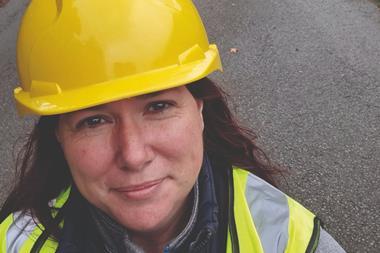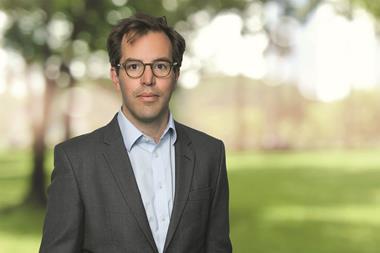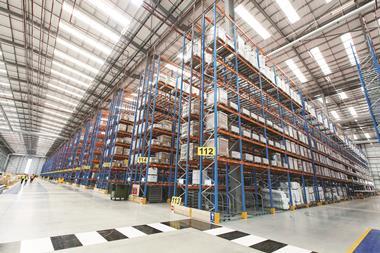At the beginning of a new year and decade, property’s leading lights reveal their hopes, expectations and resolutions for 2020 in the second of a two-part special.

Ted Schama
Managing partner, Shelley Sandzer
The leisure industry has faced unrelenting challenges for a few years, so my hope is resolution of three issues born out of, and exacerbated by, uncertainty and political instability. The first of these issues is Brexit. The second is consumer spending. The third is business rates, which really should be scrapped or levelled with ecommerce on a flat rate; 50% of property value is unreasonable and unsustainable.
My feeling is we are just through the eye of the storm and new opportunities await. We are seeing this with fitted restaurants proving good value to new tenants, or landlords being more realistic and flexible with rent and capital contributions. 2018-19 saw a lot of consolidation, but this has given operators time to enhance their operations and recover their EBITDA. Now this process is mainly complete, acquiring new sites is again the way to increase profitability.
Choices of new UK sites are increasingly benchmarked against international opportunities. Since launching our international department earlier this year, we have successfully acted for Cain International on Six Senses Residences in Courchevel, with Japanese F&B powerhouse Sumosan opening this ski season.
We have more exciting signings in the pipeline, reflecting the power of quality dining brands across the globe.
Resolutions: I have developed a bit of an addiction to Instagram. It is the most important tool right now for finding out what is happening in the leisure industry, but perhaps I should limit my use of it to waking hours only!

Adrian Barlow
National head of real estate, Irwin Mitchell
I hope consumer confidence and the outlook for retailers improves and that the government prioritises its manifesto pledge to reform business rates, applying any reform to retailers of all sizes – not just smaller retailers.
There may be an unsettling focus on domestic constitutional issues, given calls for IndyRef2 in Scotland and the threat of legal action if Westminster refuses; and the impact of Northern Ireland returning more nationalist MPs than unionists.
However, property markets should improve and provided we are able to negotiate a decent trade deal and orderly Brexit, investor confidence will return.
Shares in housebuilders have improved in the wake of the election result, which is promising. The Conservatives will need to get a proper grip on this issue and support the increased demand to build new homes.
Demand for housing will continue to grow and we should see further increase in the provision of retirement living accommodation. We may see further growth of alternative housing types.
Resolutions: To continue to build my firm’s capability and resources to support our clients’ diverse needs and to encourage my team to spot and attend to our client needs as they navigate the ever-changing property environment.
I will continue to work hard to achieve a diverse, agile and flexible workforce that works for our people as well as our clients. I will continue to speak out for and support initiatives that encourage wellbeing and mental health, not only in Irwin Mitchell, but also in the wider business environment.

Paul Sargent
Chief executive, Queensberry
The next 12 months will see continual restructuring of retail businesses. Change and adaptation is now a constant in the sector. Consumers are now dictating what they want and finally influencing with real-time impact. This is the new normal.
From a physical built environment perspective, it is something we at Queensberry pre-empted several years ago as we observed the changing way consumers were interacting and using urban spaces.
We now develop much more with highly flexible concepts of space in the mixed-use sector, integrating retail with everything from co-living to co-working and cultural buildings.
Our focus this year will also be on repositioning and understanding the intricacies of the locations in which we work. This is key to unlocking potential and future-proofing these urban centres. You can no longer build a glass-box shopping centre and assume consumers will come.
Local authorities will continue to have a crucial role to play in rebuilding and revitalising our high streets and city centres. We will be working closely with our public sector partners in Sheffield and Barnsley to help them complete our schemes under construction.

David Shepherd
Service director, regeneration and culture, Barnsley Metropolitan Borough Council
Local authorities have proven critical in unlocking regeneration over the last five years. As the market continues to diversify and shift in 2020, it will be ever-more important that public and private sectors work together.
This is a strategy we adopted in 2017 when we invested £180m to develop The Glass Works in Barnsley. Moving forward with the project will be our key focus.
We are operating in a retail market where the only certainty is that there could be more uncertainty. We have therefore focused on additional draws to encourage footfall back into Barnsley town centre.
We have coupled full-price mainstream retail and leisure uses with a new Market Hall, Market Kitchen and Library in the space of a department store. These uses are not what you would previously have expected to see in a town centre, but we recognise the need to celebrate local enterprise and business and integrate cultural uses. With the project set to complete in 2021, it will be an exciting 12 months for us as we realise further benefits from our investment.

Richard Kauntze
Chief executive, BCO
Clearly, there are great political, environmental and societal changes taking place. I hope workplaces play a positive part in this change and, rather than just react to what’s happening, help lead and show direction.
Our workplaces can and should play an active role in the community, rather than be corporate fortresses. We can also lead great environmental change. In the UK, 25% of emissions come from buildings – and a good proportion of this will be offices. This a scary statistic but it also highlights the positive impact we could have if we put our minds to it.
The BCO has been talking about wellness for a long time. Our landmark research, Wellness Matters, came out in 2018 and it was a major focus of our work last year. Slowly, we are starting to see a greater understanding about the role of the workplace in fostering wellness. It used to be a bit of a tick-box exercise. A ping-pong table, check. Sparkling water on tap, check. Things are changing, thankfully, and we are thinking about wellness in a more developed way.
I expect 2020 to be the year we see people think really strategically about wellness and how individual wellness needs might differ between sectors and, indeed, between employees.
Resolutions: The BCO Annual Conference is in Toronto – a city buzzing with entrepreneurialism, disruption and creativity. My aim is to bring some of that thinking and innovation to our work in the UK. I’m excited to see what the city can teach us and plan to challenge those I work with to tackle their work with the same rigour, creativity and ambition.

Maxwell Shand
Founding director, YardNine
I hope 2020 will be characterised by a return to stability and positivity. I also hope for continued improvements in the relationships between the property industry and local communities, as this is vital if we are to deliver projects that genuinely meet the needs of the people around them.
We will see the continued integration of workspace, retail, entertainment and amenity uses, creating vibrant mixed-use spaces that reflect the busy lifestyles of modern consumers and occupiers. Although the environment for retail property will continue to be challenging, it will also offer up opportunities, which could result in some new and dynamic concepts.
Resolutions: The future of our industry depends on attracting a diverse pool of talent. Through the Pathways to Property initiative, I plan to help attract those who would never have thought of a career in property into our sector.
I will also continue to seek out creative thinkers to work with and spend more time visiting new places to continue learning. Getting the basics right – in terms of light, space, flexibility and authenticity – will remain vital to creating exceptional buildings.
I plan to reflect on what we have done well since forming the business and what we can do better. We look forward to marking the completion of our first development, EightyFen, in the summer.
Continue to part 12 here
2020 vision: predictions for the year ahead
- 1
- 2
- 3
- 4
- 5
- 6
- 7
- 8
- 9
- 10
- 11
 Currently reading
Currently reading2020 vision: predictions for the year ahead (part 11)
- 12
- 13
- 14
- 15
- 16
- 17
















































No comments yet